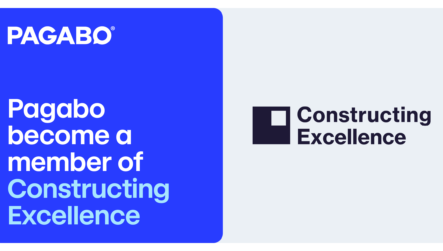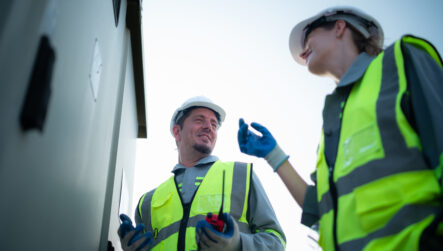
UKREiiF has once again proven to be a landmark event, with more than 14,000 attendees gathering to forge connections and collaborate on solutions for a brighter future.
Within our own Pagabo Group Pavilion, we played a pivotal role, spearheading discussions on procurement, social value, and digital integration, with a particular emphasis on the forthcoming Procurement Act. In every panel and session throughout the week, our mission was putting the power of knowledge into the hands of those joining us and helping them to navigate forthcoming legislation changes and the common challenges various sub-sectors of the built environment have to navigate. And, with a date for the general election announced during the week, this will be even more important to our collective future success.
The power of partnerships
One of the standout themes was the way in which the private and public sectors interface with one another, particularly when it comes to development. The private sectors expertise and resources are crucial in supporting the public sector as pressure mounts and budgets continue to be stretched and balanced with public services.
Early engagement is super important – and indeed the benefits of early contractor engagement are well-known. However, early developer engagement is just as beneficial to scheme success and formed a core focus for many of our speakers, including those from Lovell Partnerships and Telford & Wrekin Council on the panel of our first live in-person Pagabo Live session.
Introduction of developers at the earliest stage helps to avoid wasted time and budget by examining viability and masterplans at the start. This makes sure that these elements are reviewed and confirmed as being actually deliverable – avoiding costly revisions later on.
Effective procurement processes and pipeline visibility
Completely essential for maintaining project momentum, effective procurement enables speed. When budgets are tight, public bodies simply can’t lose months or even years to unnecessary governance and slow processes. That’s where frameworks like our own come in – providing simplicity and pace. In turn, that also minimises deal fatigue within the project teams, and speed of progress keeps a fizz of excitement with wider stakeholders.
As large-scale development schemes have a different set of stakeholders and challenges to navigate than central construction, so too do infrastructure projects. The conversations throughout the week, however, still revealed commonalities with broader construction themes, including the visibility of pipeline opportunities – and indeed clarity on whether those opportunities will actually come to the market.
Frameworks like our own Civils and Infrastructure Framework aid with pipeline visibility, and the incoming Procurement Act 2023 also addresses this matter of transparency to build both momentum and future confidence. And, the collaboration and relationships built between frameworks, clients and suppliers helps to expedite procurement processes while not compromising on compliance – getting projects up and running as quickly as possible, whether utilising direct award or further competition.
Championing social value
To paraphrase a well-known saying, value is in the eye of the beholder. The important point is identifying the social value outcomes of any project. Sometimes a local authority can have an incredibly clear idea of what this should look like, allowing for very specific questions to be introduced to the tender process. However, sometimes it’s a case of working with the local authority on the identification process, working out what will have the best social return on value to leave a lasting legacy.
Specific, localised social value remains key – and is very much driven as a major factor in our own procurement processes. Equally, it remains beyond, with access for clients and suppliers to Loop’s platform, which allows not only accurate forecasting and measurement – but the application of place-based accuracy too.
Discover our frameworks
















































































